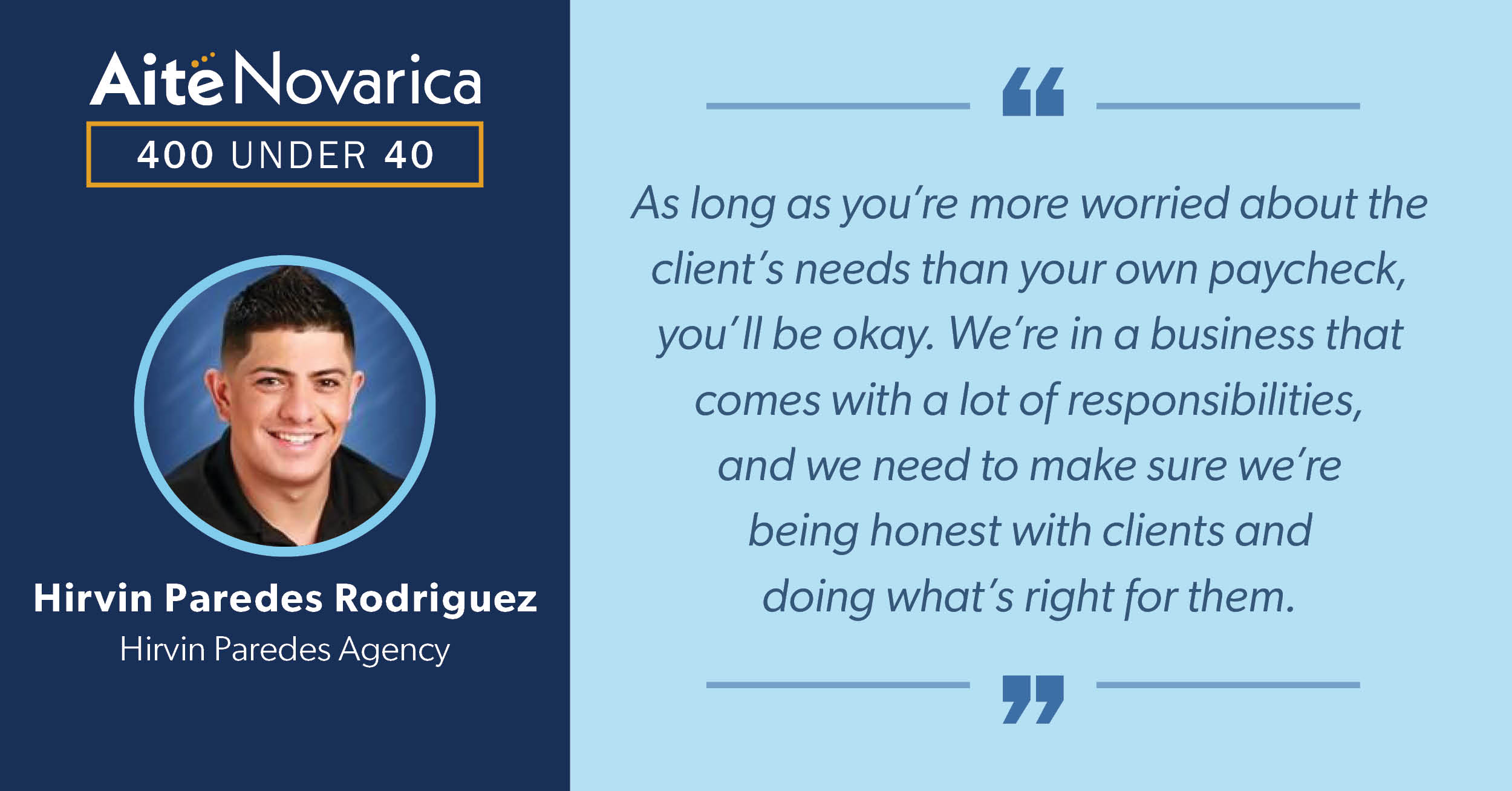 How did you get into insurance?
How did you get into insurance?
When I left high school, I started out doing manual labor type jobs. I wanted something less physical, so I found a job near my home with an insurance company. They focused on casualty coverage, and it was just perfect for me; it turned out I really liked the job! From there, I moved to American Family Insurance, and I fell in love with it the first month I was there. I liked that I was able to help people.
After working in the industry for a few years, I took a big step and opened my own business. To start, I had a small book of business focused on personal lines, but over these last four years I’ve grown the business and we’ve expanded to cover property/casualty and life across eight states now.
It wasn’t a lot to start with, but I was happy just to have the opportunity to do what I love. Around that time, a lot of people were moving in and out of the area, and many of my older clients were retiring out of state, so I got those licenses in order to stay with them. The clients liked being able to stay with the brand and the people that they knew had their best interests at heart.
Is there any technology that helps drive your business forward?
When I first started the agency, I thought I could see where things were headed. I had a lot of ideas that older agents I talked to weren’t interested in. I wanted to try new things: Can people work remotely? Can I get business without a storefront? How can I get found when people search Google?
I worked with some more tech-focused people to do search engine optimization. When the pandemic hit, we were already ready for it. I saw how things were moving, and I grabbed onto it. I think 2020 was our biggest year of business, and that’s because we were ready to go with a plug-and-play methodology. We already had the hardware and were able to enable remote work.
What do you think makes a good insurance agent?
As long as you’re more worried about the client’s needs than your own paycheck, you’ll be okay. We’re in a business that comes with a lot of responsibilities, and we need to make sure we’re being honest with clients and doing what’s right for them.
I like to think that there’s no such thing as too much insurance. There are definitely people who need more than the minimum, especially in states where the minimum is so low. If we undervalue them by giving them the lowest coverage, just because it’s cheaper, when something does happen to that person they’ll be in a bind and they’re going to blame us. If, instead, we get them what they need and are there for them to help if they have a claim, they’re going to recommend us, and those referrals will lead to even more referrals.

